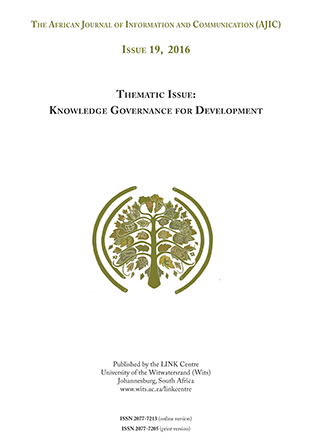Reflections on Intellectual Property Benefit-Sharing in Employment Situations in Ghana
Keywords:
intellectual property rights (IPRs), protection, justification, incentive, reward, employment, benefit-sharing, GhanaAbstract
Among the key justifications for protecting intellectual property rights (IPRs) is that they incentivise and reward human creativity and innovation. The incentive/reward rationale is expected to foster a culture of innovation across jurisdictions and to provide sufficient motivation for further research and innovation. In this thematic report, the author explores the practical relevance of the incentive/reward justification for intellectual property (IP) protection in situations of employment. The author argues that in employment situations under Ghanaian law, the employer enjoys the economic benefits of the fruits of mental exertion to the detriment of the employee; the party actually engaged in the enterprise of creating IP materials receives insufficient incentives. This reality, the author argues, undermines the practical relevance of the core justification for IPRs protection.
References
Adusei, P. (2013). Patenting of pharmaceuticals and development in Sub-Saharan Africa: Laws, institutions, practices, and politics. New York: Springer. https://doi.org/10.1007/978-3-642-32515-1
Amani, B. (2009). State agency and the patenting of life in international law: Merchants and missionaries in a global society. Oxford: Routledge
Amegatcher, A. O. (2013). Ghanaian Law of Copyright. Accra: Omega Law Publishers.
Beloff v Pressdram [1973] 1 All E.R. 241.
Copyright Society of Ghana v Afreh [1999-2000] 1 GLR 135.
Diamond v Chakrabarty, 447 US 303 (1980).
Fisher, W. (2001). Theories of intellectual property, in New essays in the legal and political theory of property. Cambridge, UK: Cambridge University Press.
Gervais, D. J., & Judge, E. F. (2011). Intellectual property: The law in Canada (2nd ed.). Toronto: Carswell.
Locke, J., & Macpherson, C. B. (1980). Second treatise of government [1690]. Cambridge, MA: Hackett Publishing.
Merges, R.P. and Ginsburg, J. C. (2004). Foundations of intellectual property. New York: Foundation Press.
Musicians Union of Ghana v Abraham C Another [1982-83] GLR 337.
Pearson Education Ltd v Adzei [2011] 2 SCGLR 864.
Penrose, E. T. (1973). Economics of the international patent system. Westport, CT: Greenwood Press.
Ransome-Kuti v Phonogram Ltd [1976] 1 GLR 220 HC.
Ransome-Kuti v Phonogram Ltd [1978] GLR 316 CA.
Republic of Ghana. (2003a). Patents Act, 2003 (Act 657). Retrieved from http://www.wipo.int/wipolex/en/text.jsp?file_id=223077
Republic of Ghana. (2003b). Memorandum to Copyright Bill.
Republic of Ghana. (2005). Copyright Act, 2005 (Act 690). Retrieved from http://www.wipo.int/wipolex/en/text.jsp?file_id=148037
Republic of Ghana. (2013). Memorandum: Plant Breeders’ Bill of Ghana, October 1, 2013. Retrieved from http://www.upov.int/edocs/mdocs/upov/en/c_47/plant_breeders_bill_of_ghana.pdf
Smith, A. (2003). The wealth of nations (A.B. Krueger, Ed.). New York: Bantam [1776].
Stiglitz, J. E. (2008). Economic foundations of intellectual property rights. Duke Law Journal, 57, 1693-1724.
University of Ghana. (2015). Intellectual Property Policy. Retrieved from http://orid.ug.edu.gh/ippolicy
University of Western Australia v Gray [2009] FCAFC 116 (Australia).
Downloads
Published
Issue
Section
License
Copyright (c) 2016 https://creativecommons.org/licenses/by/4.0

This work is licensed under a Creative Commons Attribution 4.0 International License.
How to Cite
- Abstract 279
- pdf 186


.png)